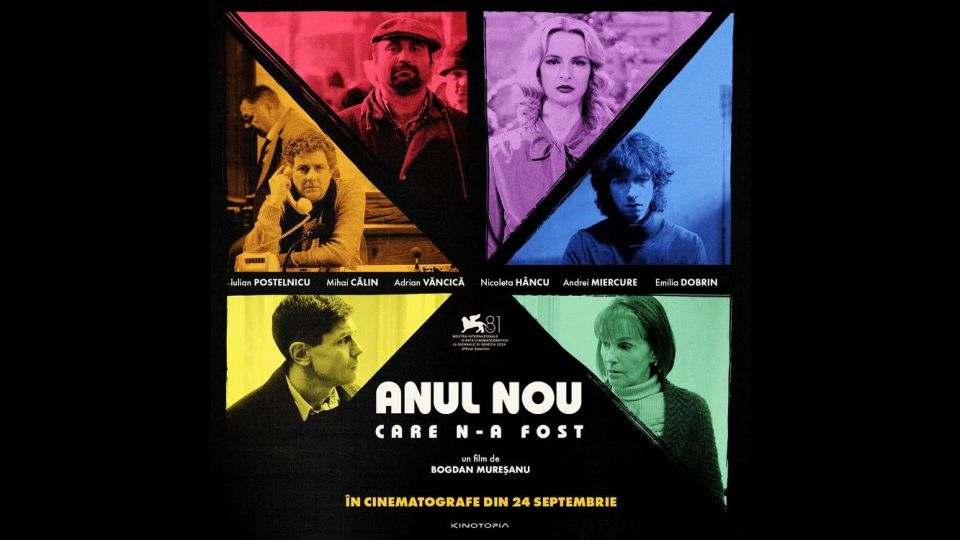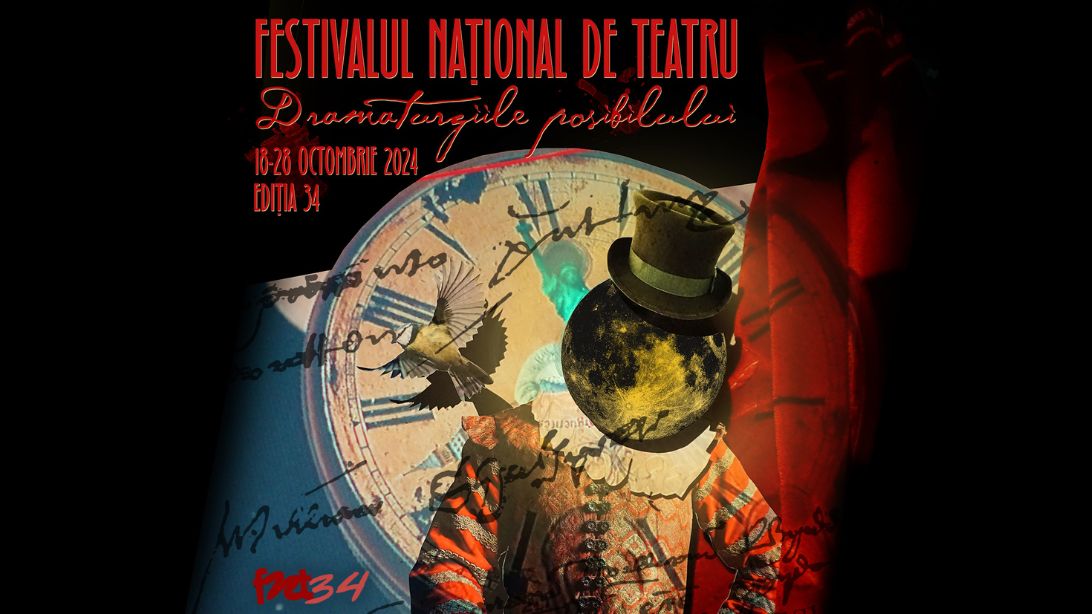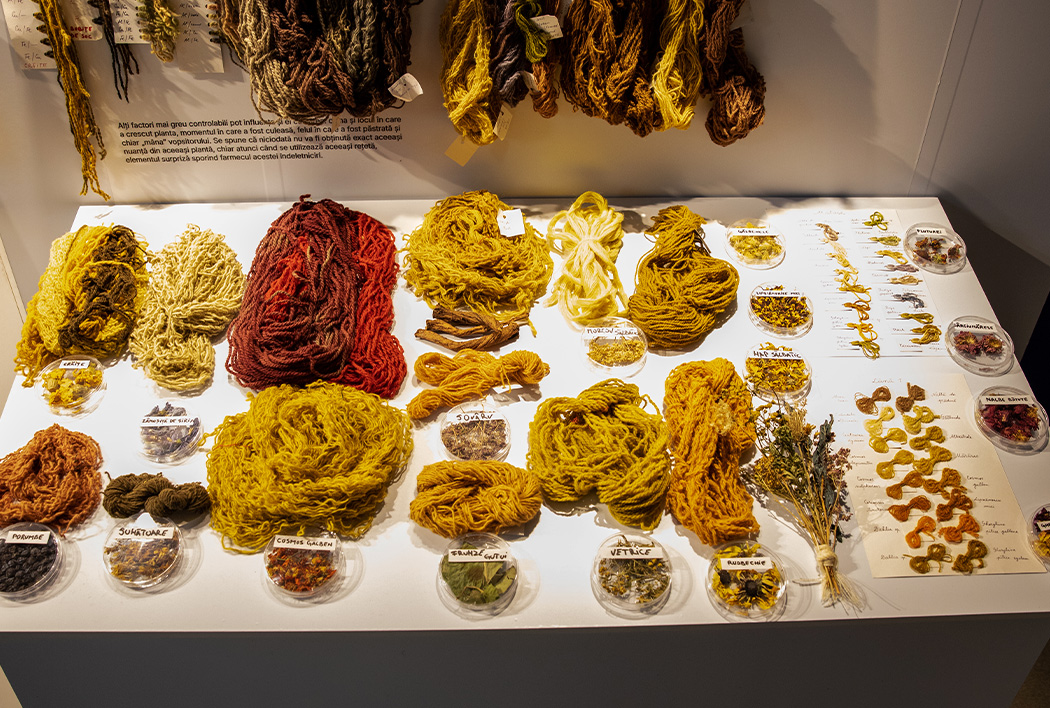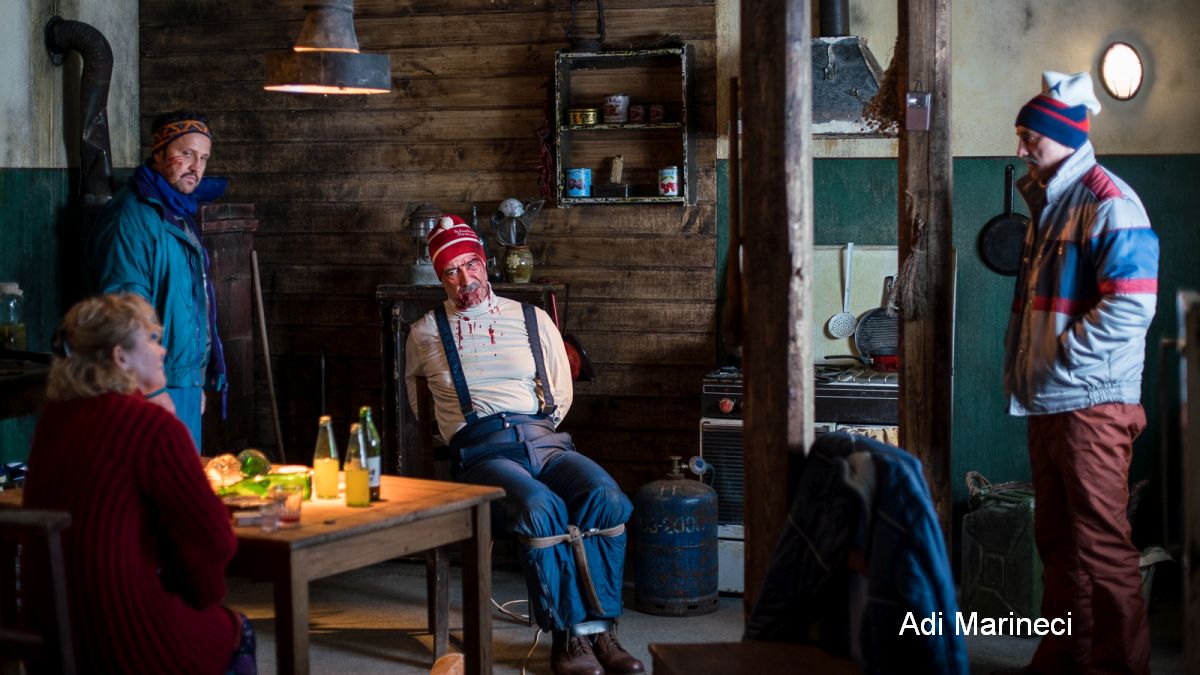The Gaudeamus International Book and Education Fair
For this edition, the Casa Radio Publishers has prepared a fresh series of titles that were brought out in its well-established collections. So listeners and readers are regaled with books published in collections such as the Golden Tape Library, The Show of Poetry, Reading in the Dark, the Romanian Poetry Library and the Radio Library. This years’ edition is focusing on the past five decades of Romanian poetry, featuring poems by Ana Blandiana, Nina Cassian, the unparalleled Serban Foarta, who versifies some of I. L. Caragiale’s writings. There are two “textbook” poets, George Cosbuc and G. Topirceanu, re-read by two major poets of present-day Romania, Ioana Nicolaie and Florin Iaru. 115 poems by Ana Blandiana have been brought together on a double CD album and a book and under a suggestive title “Is the flower free? Poems read on the radio”. There are recordings retrieved from Radio Romania’s Golden Tape Library, recorded in more than five decades, between 1965 and 2017. The most recent recording session was made on March 24th, 2017, a day before Ana Blandiana’s 75th birthday anniversary. Here is Ana Blandiana herself, speaking at the launch of the aforementioned audio book.
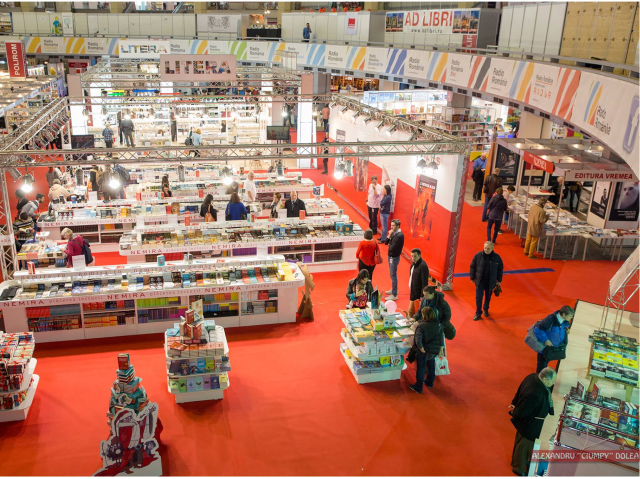
Corina Sabău, 13.12.2017, 13:34
For this edition, the Casa Radio Publishers has prepared a fresh series of titles that were brought out in its well-established collections. So listeners and readers are regaled with books published in collections such as the Golden Tape Library, The Show of Poetry, Reading in the Dark, the Romanian Poetry Library and the Radio Library. This years’ edition is focusing on the past five decades of Romanian poetry, featuring poems by Ana Blandiana, Nina Cassian, the unparalleled Serban Foarta, who versifies some of I. L. Caragiale’s writings. There are two “textbook” poets, George Cosbuc and G. Topirceanu, re-read by two major poets of present-day Romania, Ioana Nicolaie and Florin Iaru. 115 poems by Ana Blandiana have been brought together on a double CD album and a book and under a suggestive title “Is the flower free? Poems read on the radio”. There are recordings retrieved from Radio Romania’s Golden Tape Library, recorded in more than five decades, between 1965 and 2017. The most recent recording session was made on March 24th, 2017, a day before Ana Blandiana’s 75th birthday anniversary. Here is Ana Blandiana herself, speaking at the launch of the aforementioned audio book.
“There is something I want to say, especially about the Golden Tape Library, about the place those poems come from, and about how they got there. Before dreaming to become part of the Golden Tape Library, a while back, when I was very young, living in Oradea and listening to the radio. I used to listen to the radio a lot more than I do now, and when I heard that recordings in the Golden Tape Library were broadcast it seemed to me they made the supreme value of everything the radio had to offer. Later, when Emil Buruiana of Radio Romania’s Culture Channel, invited me to make some recordings, I was very excited because I recalled the sensation I had while listening to those programmes. And, irrespective of the managers succeeding each other at the Radio Broadcasting Corporation, as some liked me and others didn’t, I was awfully glad for the privilege to make recordings for the Golden Tape Library. I would describe them as some sort of a history void. And that mainly applies to poems that I very much wanted to be saved in something like Noah’s Ark.”
Playwright and journalist Matei Visniec was the honorary president of the 2017 edition of the Gaudeamus International Book Fair. In his opening address, Visniec said Romania was extremely competitive from a cultural point of view. Visniec has also hailed the selection of the European Union as the guest of honor for the Gaudeamus International Book Fair. “Romania has its chance, and that chance is culture” playwright Visniec said at a debate series entitled “The Europe of theater and writers — the circulation of artistic values as the backbone of Europe“. The debate was hosted by the “At home in Europe” stand. You’re now invited to listen to an excerpt from a recording that was made during the talks Matei Visniec had with his readers at the Polirom Publishers’ stand.
“One of the reasons I write novels is that for me, literary genres are like some kind of children, I love them all, poetry, essay, novel, theater. Especially poetry, ‘cause it’s something I grew up in, theater forged me into what I am today whereas the novel diversified me. I decided to write novels also because I was frustrated with the fact that my plays, in order to make it to their audience, needed intermediaries. They needed a theater manager, stage director, actors, set designers. At a certain time, these intermediaries somehow got at me; I did not like the idea that I was supposed to depend on them all along. I liked the idea of writing, but without the need of intermediaries, so I wrote novels also out of an urge to create a direct bond between me and my readers.”
One of the most recent series of volumes that have been brought out as part of the Humanitas Publishers’ Contemporary Romanian Writers is Augustin Cupsa’s novel ‘So the grass may grow on us’, launched at the Gaudeamus International Book and Education Fair. Characters in Augustin Cupsa’s novel, Edi, Pisică (Cat), Tobă, (Drum) Mânzu and Tomi brothers live on the outskirts of Craiova, and deal with the poaching of bird species they would later sell in Italy via an underhand connection. Re-told through Pisica’s voice, the most frail and sensitive of the children, the episodes do manage to get a dramatic dimension also revealing the book’s more profound themes, such as the feeling of guilt, doubled by the obsession of escaping to an idealized Italy, the land where dreams come true. Speaking now is essayist Doru Castaian, recommending the novel, ‘So the grass may grow on us’.
“Augustin Cupsa is one of the best prose writers of today, at least considering those I have read. As far as I know, it took Augustin two years to do the research for his novel. In the book, there is frailty, there is warmth, but at the same time there is some sort of cruelty wrapping everything in some sort of atmosphere and smoke. I for one wouldn’t say that kind of violence is lurching somewhere behind the scenes, waiting to come out in the open. It is the violence of this world, experienced absolutely naturally, it is one of the main ingredients and spices of the world depicted by Augustin Cupsa. There are large categories of readers who will perfectly understand the world depicted in this book. In terms of age bracket, I am part of that category of readers. Furthermore, living in Galati, the life I had there was somewhat comparable to that of the characters depicted by Augustin Cupsa. Of course, people of our generation, living between blocks of flats, where we learned the important things in life in a different way as compared to the world of books, they are very familiar with the fictional world in the book. However, I am not so sure if that fictional world is equally accessible to the children of today, I realized that when I saw cherry plums rotting in the trees. Back in my day it was impossible for them to stay in the trees; I remember we actually had some real traffic of cherry plums, for a bunch of red cherry plums you used to get three sour cherry plums”. (Translated by E. Nasta)

